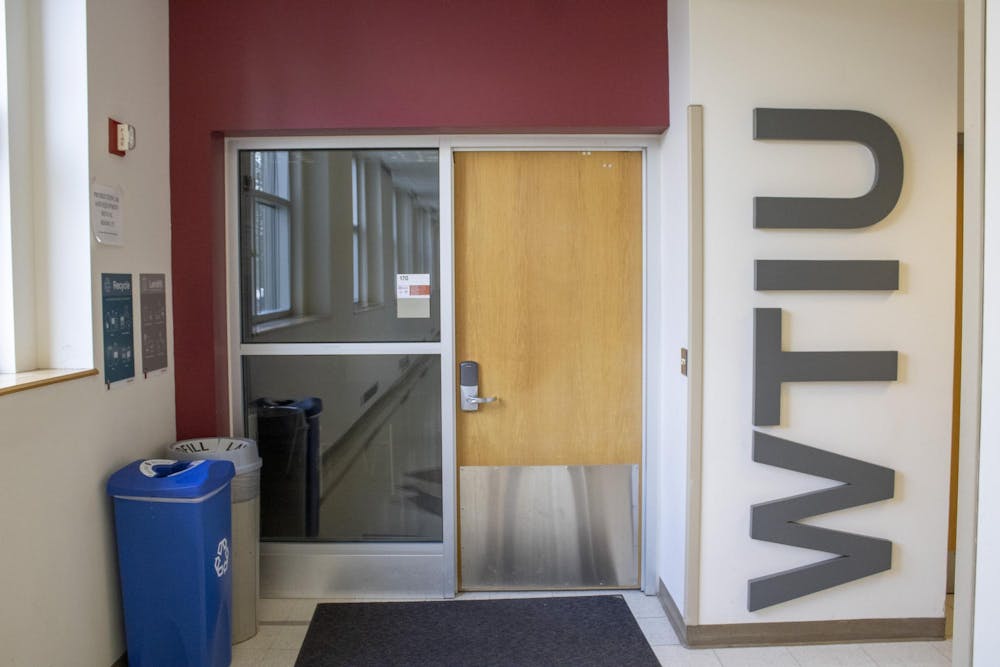U.S. Sen. Jim Banks introduced his Defund NPR Act on Feb. 26, which would amend the U.S. Communications Act to completely eliminate federal funding from National Public Radio.
The Corporation for Public Broadcasting is a nonprofit entity established by Congress in 1967 that distributes federal funds to public radio and television stations. Banks’ bill would eliminate any wording of “National Public Radio” from the Communications act, in turn removing all federal funding from NPR.
Defunding NPR would affect the funding of NPR-affiliated local stations all across Indiana. This includes WFIU, IU’s NPR-affiliated public radio station. Many of these local stations rely on multiple sources of funding to stay afloat, and the federal funding that Banks’ bill would eliminate is often essential.
Jay Kincaid, Interim Executive Director of WFIU and WTIU, said those working for WFIU and WTIU are aware of the bill, waiting to see what happens and continuing to work as usual.
Georgia Rep. Marjorie Taylor Greene also called for the federal defunding of PBS and NPR in a DOGE hearing March 26, referring to the news outlets as “radical left-wing echo chambers” and “communist.” During a White House meeting the day before, President Donald Trump claimed he “would love to” eliminate federal funding for NPR and PBS, calling the outlets “very unfair” and “very biased.”
YouGov found that PBS was America’s third most trusted news source in 2024, preceded by The Weather Channel and BBC. NPR was ranked seventeenth most trusted out of the 52 ranked news sources.
Banks did not respond to the Indiana Daily Student’s request for comment by the time of publication. “Taxpayers shouldn’t be forced to fund NPR’s liberal propaganda,” Banks said in a press release.
Public broadcasting costs Americans an average of $1.60 per year, which gives 99% of Americans access to free public media, according to CPB.
According to PBS, public media funding has been threatened for at least six decades, generally for political reasons.
Matt Pierce, senior lecturer of telecommunications at IU, said the aim of this bill is not new, but the reasoning behind it is different this time.
“Past attempts to remove funding from public broadcasting were based on an argument that we didn’t need it anymore because we have lots of different outlets,” he said. “That’s a very different argument than ‘we don’t like the speech of these outlets so we’re going to punish them’.”
He added that this bill seems to be a piece of a larger movement.
“This (bill) is just part of a greater attempt to intimidate the media to get in line and to basically adopt a Fox News approach to reporting on the Trump administration and the Republican Congress,” Pierce said.
IU’s own NPR and PBS affiliated programming, WFIU and WTIU, receive 13% of their budget from Corporation for Public Broadcasting.
Sara Wittmeyer, the News Bureau Chief at WFIU and WTIU, said their funding comes from a variety of different sources and isn’t stable from year to year. However, she said, each flow of funding is essential to their programming. Wittmeyer said although defunding public media has been a reoccurring topic in the U.S. for some time, she is still worried.
“I will say from my perspective, this one does feel different and more serious just because we’ve seen all of the cuts that have been happening as part of DOGE,” Wittmeyer said. “So, I think folks are more antsy about this one.”
However, she said she works to protect her news team from external voices so that they can keep focused on serving their communities.
John Bailey, Director of Broadcast Operations for WTIU and WFIU, said in an email to the IDS that there are very few Indiana-based TV stations available to Hoosiers living in the southeastern areas of Indiana. The majority of households in WTIU’s broadcast area, especially in the southeast, are over 50 miles away from any other on-air TV signals, Bailey wrote. This leaves them in a sort of news desert.
“That’s a critical service we provide in these communities and if we go away, their news and information is gone,” Wittmeyer said.
Wittmeyer noted that though she is worried about how this bill could affect WTIU and WFIU, she is more worried about overall effects in the rest of Indiana and the nation as a whole.
“Our stations do fairly well, we have a huge listener base and they help support our stations pretty reliably,” she said. “A lot of other stations are really operating just on the line, so close to being in the red, and if you took away CPB funding for them, that would be disastrous.”
She added that she is also increasingly worried about a general “attack on journalism right now” and attempts to “undermine journalistic integrity.”
The teams at WTIU and WFIU, she said, are continuing to do their jobs and staying optimistic that the communities and foundations that support them would continue their support if Banks’ bill were to pass.
Pierce noted that cutting off CPB funding for local stations in an attack on NPR would be harmful to local journalism.
“It’s important to have news outlets in these communities that can provide objective news,” he said.
As for the potential trajectory of Banks’ bill, Pierce said the bill itself is not likely to be a priority but that the defunding of NPR could be written into a future omnibus budget bill. Whether or not the budget bill will get passed to the Senate, he said, is the question.




